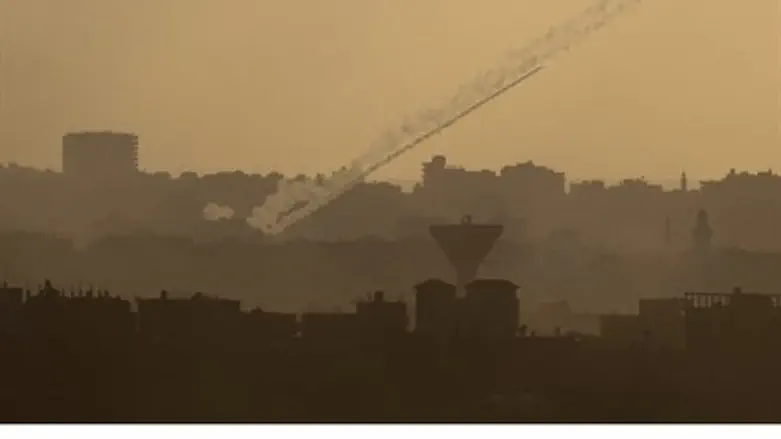
Terrorist factions in Gaza are apparently split once again over the possibility of accepting an Egyptian ceasefire proposal, with Hamas stubbornly refusing to accept it and at least two Islamic Jihad leaders claiming a truce will come into effect imminently.
Islamic Jihad official Khaled al-Battash told interviewers a ceasefire would be coming into effect "within hours", along the same basis as the ceasefire following Operation Pillar of Defense in 2012, as outlined by an Egyptian proposal. The truce deal would include provisions for the rehabilitation of Gaza after a month and a half of fierce fighting, as well as an extension of the coastal fishing zone for Gazans.
It is not clear whether the ceasefire proposal he is referring to is the initial Egyptian proposal, which was rejected by Hamas and Islamic Jihad, or a fresh proposal.
Another senior Islamic Jihad leader, Ziad Nakhleh, also claimed that a long-term ceasefire would be reached soon.
That claim, however, has not yet been verified by any other sources, and Israel has remained silent thus far.
Hamas leaders have been sounding an altogether different note, however. The terror group, which rules the Gaza Strip, has said it informed Egypt it would not accept the indefinite ceasefire, with talks on other "core issues" to follow afterwards, but is demanding that all its conditions - including the opening of air and sea ports and a total lifting of the Israeli blockade - be fulfilled first.
Hamas spokesperson Izzat al-Rishq said there had been no progress in talks and that "if there is any development, we will notify of it."
The apparent split between the two Islamist terrorist groups comes as both are grappling with how to deal with an unyielding military campaign by Israel, which has shattered their respective infrastructures and exacted a heavy toll among senior operatives.
According to Israel Radio, Islamic Jihad is eager to reach a lasting ceasefire as it has suffered a very significant blow during Operation Protective Edge, which has seen a large number of its operatives and infrastructure eliminated by Israeli air strikes and ground forces.
Hamas, too, has suffered a serious blow, particularly in the last several days following the collapse of last week's temporary ceasefire. Since then, Israel has targeted the group's top leadership, successfully killing three senior military commanders and, on Sunday, the group's top finance official in Gaza.
The head of Hamas's military wing, Mohammed Deif, was also targeted last week in an airstrike which killed his wife and two of his children, but according to Hamas he himself survived the attack - the fifth such assassination attempt on him by Israel.
However, despite the blows, unlike Islamic Jihad Hamas cannot afford to back down. As rulers of Gaza, Hamas's leadership will face fierce criticism at home if it does not come away from the devastation it wrought on the coastal enclave with something significant.
Meanwhile, terrorists fired a fresh barrage of rockets at Israel on Monday morning, as tens of rockets pounded communities in southern Israel. The IDF continued to respond to the ongoing attacks with airstrikes, killing two terrorists in Gaza overnight and hitting 16 terrorist targets in total.
